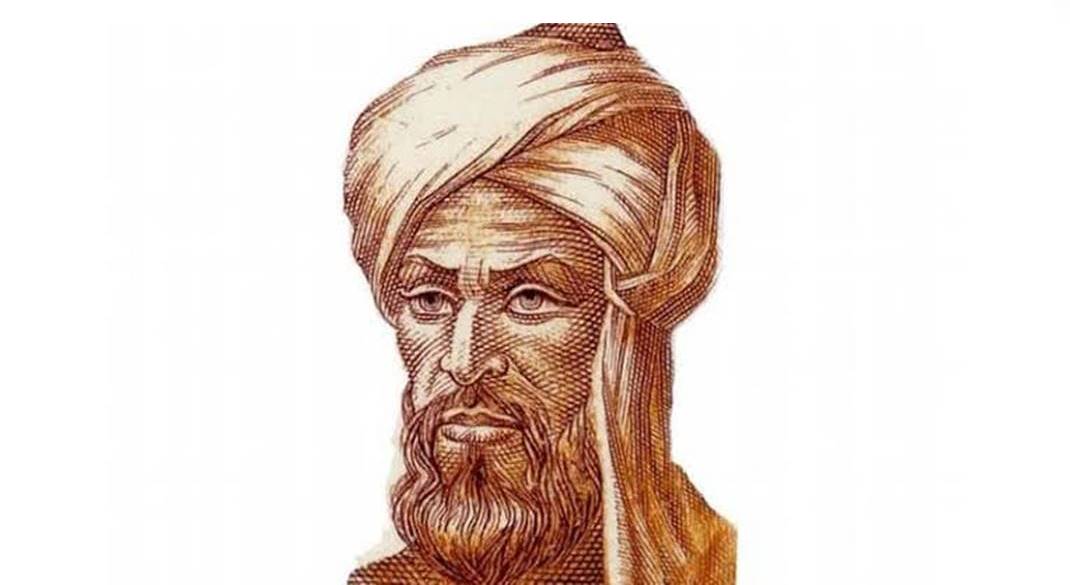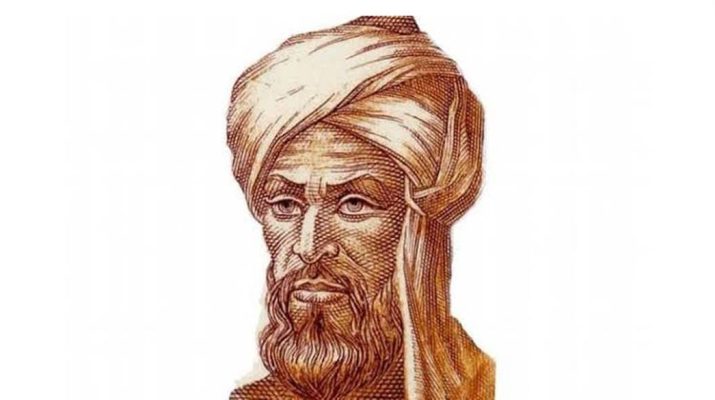𝙼𝚞𝚑𝚊𝚖𝚖𝚊𝚍 𝚒𝚋𝚗 𝙼𝚞𝚜𝚊 𝚊𝚕-𝙺𝚑𝚠𝚊𝚛𝚒𝚣𝚖𝚒, also known as Al-Khwarizmi or Al-Khwarizmi, was a Persian mathematician, astronomer, geographer, and scholar who lived in the Islamic Golden Age

He was born around 780 CE in the city of Khwarezm, which is now part of Uzbekistan.
Al-Khwarizmi was a scholar in the House of Wisdom in Baghdad, where he made significant contributions to the development of mathematics, particularly in the fields of algebra and arithmetic. His book “Kitab al-Jabr Wa-l-Muqabala” (The Compendious Book on Calculation by Completion and Balancing) introduced a systematic approach to solving linear and quadratic equations and is considered one of the foundational works of algebra.
Al-Khwarizmi also wrote works on astronomy, geography, and cartography. His “Zij al-Sindhind” was a popular astronomical table used for calculating the positions of the sun, moon, and planets. He also developed a method for finding the direction of Mecca for Muslims.
Al-Khwarizmi’s contributions to mathematics and science were instrumental in shaping the intellectual landscape of the Islamic Golden Age and beyond. His name has been immortalized through the word “algorithm,” which is derived from the Latinization of his name.
Al-Khwarizmi made significant contributions to the development of mathematics, particularly in the fields of algebra and arithmetic. Some of his major contributions include:
Algebra: Al-khwarizmi’s most significant contribution to mathematics was his book “Kitab al-Jabr Wa-l-Muqabala” (The Compendious Book on Calculation by Completion and Balancing). In this book, he introduced a systematic approach to solving linear and quadratic equations and also provided solutions for problems related to inheritance and partitions. This work laid the foundations for the development of algebra as a separate field of mathematics.
Arabic numerals: Al-Khwarizmi introduced the decimal positional number system to the Islamic world, which was based on the Hindu-Arabic numerals. This system is now widely used throughout the world and is known as the Arabic numeral system.
Trigonometry: Al-Khwarizmi wrote a book on the subject of trigonometry, which was later translated into Latin and widely used in Europe. His work included developing methods for calculating the sine and cosine functions and for calculating the lengths of chords in circles.
Geography and cartography: Al-Khwarizmi made significant contributions to the field of geography and cartography, including improving the projection of maps and developing a method for finding the direction of Mecca for Muslims.
Algorithms: Al-Khwarizmi is credited with introducing the concept of the algorithm, which is a set of rules or steps used to solve a problem or perform a calculation. The word “algorithm” is derived from his name in Latin (Algoritmi).
Overall, Al-khwarizmi’s contributions to mathematics were instrumental in the development of several fields of study, and his work had a lasting impact on the intellectual landscape of the Islamic world and beyond.
Napomena o autorskim pravima: Dozvoljeno preuzimanje sadržaja isključivo uz navođenje linka prema stranici našeg portala sa koje je sadržaj preuzet. Stavovi izraženi u ovom tekstu autorovi su i ne odražavaju nužno uredničku politiku The Balkantimes Press.
Copyright Notice: It is allowed to download the content only by providing a link to the page of our portal from which the content was downloaded. The views expressed in this text are those of the authors and do not necessarily reflect the editorial policies of The Balkantimes Press.

